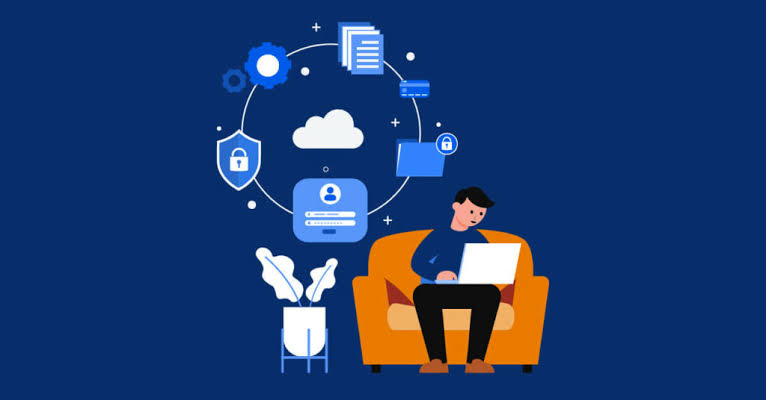In today’s digital era, small businesses are just as vulnerable to cyberattacks as large corporations, if not more. Many small enterprises assume that hackers only target bigger organizations, but the reality is that attackers often see small businesses as easier prey due to their limited resources for security. With cybercrime on the rise globally, adopting strong cybersecurity practices has become a necessity rather than an option. Implementing the right measures helps protect sensitive information, ensures business continuity, and builds trust with customers.
Understanding the Risks Small Businesses Face
Small businesses face several cybersecurity threats that can cripple operations. Common risks include phishing attacks, ransomware, malware infections, and unauthorized access to business systems. These threats can lead to financial losses, reputational damage, and loss of customer trust.
For example, a single phishing email that tricks an employee into revealing login credentials can compromise customer data. Similarly, ransomware can lock critical business files and demand payment before releasing them. Since many small businesses lack dedicated IT teams, these attacks can have devastating consequences if proactive measures are not in place.
Strong Password Policies
Passwords remain the first line of defense against cyber threats. Weak or reused passwords create an easy entry point for hackers. Small businesses should enforce a strong password policy across all accounts and systems.
Employees should be encouraged to create unique passwords with a combination of letters, numbers, and special characters. Password managers can be introduced to help staff securely store and manage complex credentials. It is also advisable to change passwords regularly and avoid using the same password across multiple platforms.
Multi-Factor Authentication
Relying on passwords alone is no longer sufficient in 2025. Multi-factor authentication (MFA) provides an extra layer of protection by requiring users to verify their identity through additional methods such as one-time codes sent to mobile devices, biometrics, or authentication apps.
MFA significantly reduces the chances of unauthorized access, even if a password is stolen. Small businesses should implement MFA across email accounts, cloud platforms, banking systems, and customer databases to strengthen overall security.
Regular Software Updates and Patching
Cybercriminals often exploit outdated software to gain access to systems. Small businesses should prioritize regular software updates, as these patches address known vulnerabilities. This includes updating operating systems, business applications, web browsers, and antivirus software.
Automating updates where possible helps ensure nothing is overlooked. By keeping all systems current, small businesses reduce the risk of falling victim to attacks that target outdated tools.
Employee Training and Awareness
Human error remains one of the biggest weaknesses in cybersecurity. Employees who are unaware of the latest threats may unknowingly expose the business to risks. Regular cybersecurity training is essential to build a culture of awareness.
Training should cover topics such as identifying phishing emails, safe internet browsing practices, handling sensitive information, and reporting suspicious activity. Employees should also be taught to verify unexpected emails or attachments before clicking links or downloading files. A well-informed workforce acts as the first line of defense against cyber threats.
Data Backup and Recovery Plans
Every small business should have a reliable data backup strategy. Cyberattacks such as ransomware or system crashes can lead to permanent data loss if there are no backups. Businesses should store backups in secure, offsite locations or cloud-based services.
Equally important is having a disaster recovery plan that outlines how to restore operations quickly after an incident. Testing the recovery process regularly ensures that the business can continue running smoothly even in the event of a cyberattack.
Secure Wi-Fi Networks
An unsecured Wi-Fi network is an open invitation for cybercriminals. Businesses should always use encrypted, password-protected Wi-Fi connections and avoid default router settings. Network segmentation, where guest users are separated from internal business systems, also reduces exposure to risks.
Employees working remotely should be encouraged to use virtual private networks (VPNs) when accessing business systems, ensuring that sensitive data remains protected on public or unsecured networks.
Implementing Firewalls and Antivirus Software
Firewalls act as a barrier between a business’s internal systems and external threats. Both hardware and software firewalls help filter harmful traffic before it reaches the network.
Alongside firewalls, small businesses should invest in reputable antivirus and anti-malware solutions. These tools detect and block malicious software, providing an essential layer of security. Regular scanning and updates keep defenses strong against evolving threats.
Restricting Access to Sensitive Information
Not all employees need access to all company data. Businesses should implement the principle of least privilege, ensuring that employees only access the information necessary for their roles.
User access levels should be reviewed regularly, especially when employees change roles or leave the company. Limiting access minimizes the potential damage if accounts are compromised.
Partnering with Cybersecurity Professionals
Since small businesses often lack in-house IT departments, outsourcing cybersecurity services can be a wise investment. Managed service providers and cybersecurity firms offer advanced monitoring, threat detection, and incident response capabilities.
These experts can help businesses design customized security strategies, conduct regular security audits, and ensure compliance with industry regulations. Partnering with professionals provides peace of mind and allows business owners to focus on growth while experts handle security.
Conclusion
Cybersecurity is no longer a concern reserved for large corporations. Small businesses are increasingly targeted by cybercriminals, making it essential to adopt strong protective measures. From strong password policies and multi-factor authentication to employee training and data backups, each step strengthens a company’s defense against evolving threats.
By being proactive and investing in cybersecurity practices, small businesses can safeguard their operations, protect customer trust, and ensure long-term growth in an increasingly digital world.




Splendid